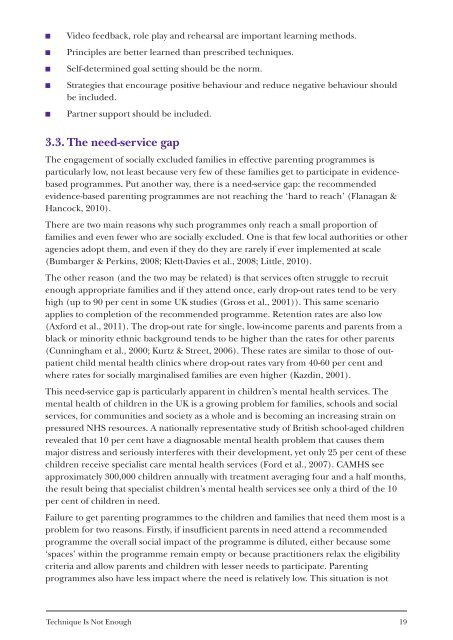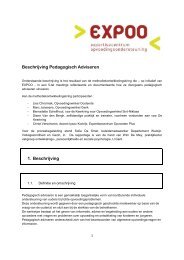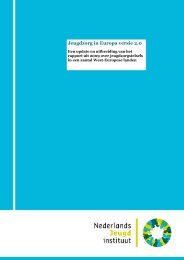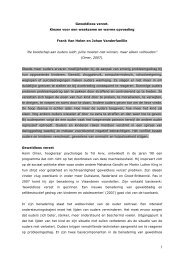Technique Is Not Enough (TINE) - British Psychological Society
Technique Is Not Enough (TINE) - British Psychological Society
Technique Is Not Enough (TINE) - British Psychological Society
- No tags were found...
Create successful ePaper yourself
Turn your PDF publications into a flip-book with our unique Google optimized e-Paper software.
■■■■■Video feedback, role play and rehearsal are important learning methods.Principles are better learned than prescribed techniques.Self-determined goal setting should be the norm.Strategies that encourage positive behaviour and reduce negative behaviour shouldbe included.Partner support should be included.3.3. The need-service gapThe engagement of socially excluded families in effective parenting programmes isparticularly low, not least because very few of these families get to participate in evidencebasedprogrammes. Put another way, there is a need-service gap: the recommendedevidence-based parenting programmes are not reaching the ‘hard to reach’ (Flanagan &Hancock, 2010).There are two main reasons why such programmes only reach a small proportion offamilies and even fewer who are socially excluded. One is that few local authorities or otheragencies adopt them, and even if they do they are rarely if ever implemented at scale(Bumbarger & Perkins, 2008; Klett-Davies et al., 2008; Little, 2010).The other reason (and the two may be related) is that services often struggle to recruitenough appropriate families and if they attend once, early drop-out rates tend to be veryhigh (up to 90 per cent in some UK studies (Gross et al., 2001)). This same scenarioapplies to completion of the recommended programme. Retention rates are also low(Axford et al., 2011). The drop-out rate for single, low-income parents and parents from ablack or minority ethnic background tends to be higher than the rates for other parents(Cunningham et al., 2000; Kurtz & Street, 2006). These rates are similar to those of outpatientchild mental health clinics where drop-out rates vary from 40-60 per cent andwhere rates for socially marginalised families are even higher (Kazdin, 2001).This need-service gap is particularly apparent in children’s mental health services. Themental health of children in the UK is a growing problem for families, schools and socialservices, for communities and society as a whole and is becoming an increasing strain onpressured NHS resources. A nationally representative study of <strong>British</strong> school-aged childrenrevealed that 10 per cent have a diagnosable mental health problem that causes themmajor distress and seriously interferes with their development, yet only 25 per cent of thesechildren receive specialist care mental health services (Ford et al., 2007). CAMHS seeapproximately 300,000 children annually with treatment averaging four and a half months,the result being that specialist children’s mental health services see only a third of the 10per cent of children in need.Failure to get parenting programmes to the children and families that need them most is aproblem for two reasons. Firstly, if insufficient parents in need attend a recommendedprogramme the overall social impact of the programme is diluted, either because some‘spaces’ within the programme remain empty or because practitioners relax the eligibilitycriteria and allow parents and children with lesser needs to participate. Parentingprogrammes also have less impact where the need is relatively low. This situation is not<strong>Technique</strong> <strong>Is</strong> <strong>Not</strong> <strong>Enough</strong> 19
















